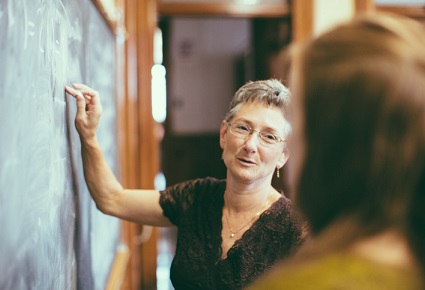
The Australian Mathematical Sciences Institute (AMSI) says Government response to the second major Gonski review into schools must consider the time and resources needed to tackle deepening issues surrounding mathematics education.
A ‘system view’ is needed to understand the maths education ecosystem, including the extent of the damage caused by Australia’s absence of university mathematics prerequisites and out-of-field teaching.
Only 14% of universities require intermediate mathematics for entry into science and students are able to enter almost half Australia’s engineering degrees without a requirement for intermediate or higher mathematics.
“The current lack of university maths prerequisites is sending a worrying value message about the impact and need for mathematics to students, schools and parents,” AMSI Director, Professor Geoff Prince, said today.
Professor Prince said the report undersold this issue, as well as the difficulty in graduating qualified secondary maths teachers and the extent of out-of-field teaching.
The Institute believes that it would take a considerable amount of time to turn around the current lack of interest in teaching amongst mathematics graduates.
At least 26% of Years 7-10 maths classes are taught by an out-of-field teacher, a figure that almost doubles for remote regions.
This is an issue that Professor Prince warns will not be solved through graduate recruitment alone.
“Insufficient attention has been paid to the professional development of out-of-field teachers, an explicit recommendation put forward by the Institute in its submission to the review panel,” he said.
“It is critical to support student learning with adequate teacher content knowledge, an issue only partially addressed by the report.”
One of AMSI’s functions is supporting greater transparency around relevant teacher qualifications to provide professional development and enhance workforce planning as recommended by the latest Gonski report.
“It is critical we understand the true extent and trends of out-of-field teaching; as the report identifies this is acute and endemic in regional and remote areas with mathematics teaching positions hardest to fill,” Professor Prince said.
Prince added that AMSI is also calling for a national campaign to tackle behavioural and cultural attitudes towards mathematics to strengthen student engagement.
“If we want students to stick with mathematics, particularly girls, we need to tackle engagement barriers beyond the classroom,” he said.
“As well as deeper understanding of career pathways, this is essential to challenge community attitudes to mathematics and its value and impact.”


